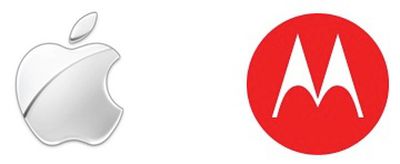Apple Pushes for Clarification on Licensing of FRAND Patents
Dow Jones Newswires reports that Apple filed a letter with the European Telecommunications Standards Institute (ETSI) last November pushing for clarification on how standards-essential patents are intended to be licensed. These standards-essential patents are currently required to be licensed under fair, reasonable and non-discriminatory (FRAND) terms in order to promote competition in the marketplace, but Apple claims that there is too much confusion in the industry about how such licensing should be handled.
Apple said in its letter--which was dated Nov. 11, but not previously disclosed--that the lack of clarity on what is fair, reasonable and nondiscriminatory has led many companies to ask unusually high rates and sue one another claiming they infringed on one another's patents.
"It is apparent that our industry suffers from a lack of consistent adherence to Frand principles in the cellular standards arena," wrote Bruce Watrous, Apple's intellectual property head.
Apple has requested that the ETSI set "appropriate" royalty rates for FRAND patents in the wireless industry in order to help companies compete on a relatively even field with a clearer understanding of the costs involved in competing in the market. The company has also requested that FRAND patents not be used as the basis for requests for injunctions that would remove products from the market, given that those patents are intended to be licensed and that any negotiation roadblocks are related to the details of that licensing.
Apple certainly has a vested interest in seeing simplified FRAND patent licensing terms, given that it was a relatively late entrant into the mobile phone industry where the vast majority of patents covering the basic technologies are owned by other companies. While Apple has primarily relied on claims of design infringement and specific user interface functionalities in its efforts to block smartphone sales by its competitors, it has been the target of lawsuits based on more fundamental inventions.

In one example, Apple briefly pulled all of its 3G-capable iOS devices with the exception of the iPhone 4S from its German online store last week in the wake of a victory by Motorola Mobility in the ongoing patent dispute between the two companies.
That injunction was quickly suspended pending Apple's appeal of the ruling, with Apple arguing that the patents in question are subject to FRAND licensing requirements that are not being met by Motorola. Apple claims that Motorola has "demanded" a royalty rate of 2.5% to license the patent, a figure that would have resulted in Motorola receiving roughly $1 billion from Apple in 2011.
Popular Stories
The long wait for an Apple Watch Ultra 3 appears to be nearly over, and it is rumored to feature both satellite connectivity and 5G support.
Apple Watch Ultra's existing Night Mode
In his latest Power On newsletter, Bloomberg's Mark Gurman said that the Apple Watch Ultra 3 is on track to launch this year with "significant" new features, including satellite connectivity, which would let you...
The iPhone 17 Pro Max will feature the biggest ever battery in an iPhone, according to the Weibo leaker known as "Instant Digital."
In a new post, the leaker listed the battery capacities of the iPhone 11 Pro Max through to the iPhone 16 Pro Max, and added that the iPhone 17 Pro Max will feature a battery capacity of 5,000mAh:
iPhone 11 Pro Max: 3,969mAh
iPhone 12 Pro Max: 3,687mAh...
Apple's next-generation iPhone 17 Pro and iPhone 17 Pro Max are just over two months away, and there are plenty of rumors about the devices.
Below, we recap key changes rumored for the iPhone 17 Pro models.
Latest Rumors
These rumors surfaced in June and July:Apple logo repositioned: Apple's logo may have a lower position on the back of the iPhone 17 Pro models, compared to previous...
The upcoming iPhone 17 Pro and iPhone 17 Pro Max are rumored to have a slightly different MagSafe magnet layout compared to existing iPhone models, and a leaked photo has offered a closer look at the supposed new design.
The leaker Majin Bu today shared a photo of alleged MagSafe magnet arrays for third-party iPhone 17 Pro cases. On existing iPhone models with MagSafe, the magnets form a...
Apple's position as the dominant force in the global true wireless stereo (TWS) earbud market is expected to continue through 2025, according to Counterpoint Research.
The forecast outlines a 3% year-over-year increase in global TWS unit shipments for 2025, signaling a transition from rapid growth to a more mature phase for the category. While Apple is set to remain the leading brand by...
iOS 26 and iPadOS 26 add a smaller yet useful Wi-Fi feature to iPhones and iPads.
As spotted by Creative Strategies analyst Max Weinbach, sign-in details for captive Wi-Fi networks are now synced across iPhones and iPads running iOS 26 and iPadOS 26. For example, while Weinbach was staying at a Hilton hotel, his iPhone prompted him to fill in Wi-Fi details from his iPad that was already...
Apple today seeded the second betas of upcoming iOS 18.6 and iPadOS 18.6 updates to public beta testers, with the betas coming just a day after Apple provided the betas to developers. Apple has also released a second beta of macOS Sequoia 15.6.
Testers who have signed up for beta updates through Apple's beta site can download iOS 18.6 and iPadOS 18.6 from the Settings app on a compatible...




















